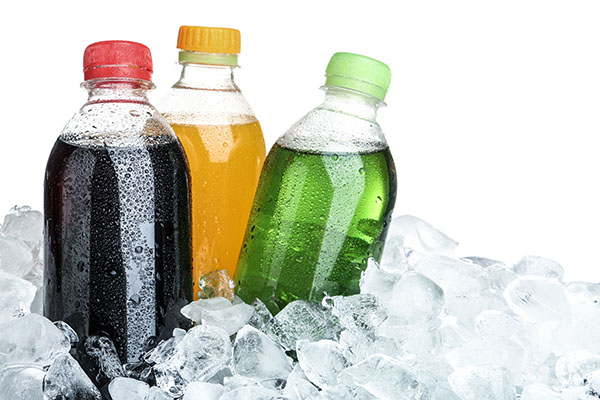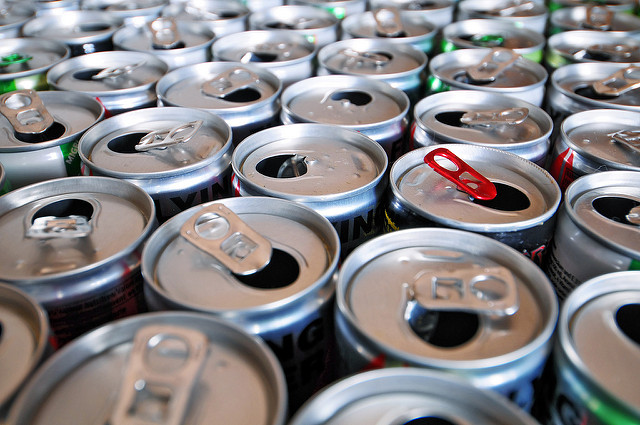
Advertisement
The Food and Drug Administration (FDA) has finally proposed a ban on a popular food additive used in various consumer foods and beverages that has been linked to many negative side effects.
Brominated vegetable oil (BVO) is a food additive that is used to help emulsify citrus-flavored soft drinks and prevent the flavoring ingredients from separating during distribution.
BVO contains bromine atoms which are bonded to the triglycerides that are derived from vegetable oil.
The concern with BVO is due to the presence of bromine, an element also found in brominated flame retardants. Some research has suggested that excessive consumption of BVO can lead to bromine accumulation in the body, potentially causing adverse effects. (Related: Maker of Prime drinks sued over PFAS and claims of excessive caffeine in its beverages.)
We are building the infrastructure of human freedom and empowering people to be informed, healthy and aware. Explore our decentralized, peer-to-peer, uncensorable Brighteon.io free speech platform here. Learn about our free, downloadable generative AI tools at Brighteon.AI. Every purchase at HealthRangerStore.com helps fund our efforts to build and share more tools for empowering humanity with knowledge and abundance.
Because of these health concerns, BVO has been subjected to scrutiny and regulatory action in various parts of the world:
- BVO is banned as a food additive in the European Union. Products containing BVO cannot be sold legally within its member countries.
- India has also banned the use of BVO in food products.
- Japan does not approve BVO for use in food products.
Why does the FDA want to ban brominated vegetable oil?
The Food and Drug Administration explained that it wants to “revoke the regulation authorizing the use of BVO in food.”
Officials have concluded that the use of the oil in food is no longer considered safe, especially since several studies have suggested that it could possibly cause adverse effects in people.
According to the FDA’s announcement, BVO is a vegetable oil that is modified with bromine.
In 1970, the FDA ruled that BVO was no longer “Generally Recognized as Safe” and started monitoring its use under the agency’s food additive regulations.
Throughout the years, many beverage makers reformulated their products to replace BVO with an alternative ingredient. Now, only a few beverages in the U.S. contain BVO.
Recent toxicology studies conducted in collaboration with the National Institutes of Health have also given the FDA conclusive scientific evidence to support the agency’s proposal to remove its food additive authorization for BVO.
There has been controversy regarding the use of the oil for many years, and some other countries have already banned BVO from being used in food. Reports have also suggested that the ingredient bromine can irritate the skin and the mucous membranes.
Additionally, long-term exposure can cause neurologic symptoms such as headaches, memory loss and impaired balance or coordination.
BVO is often included on the nutrition facts list on diet soda drinks.
It is also used in the following products:
- Baked goods
- Citrus-flavored soda
- Citrus-flavored sports drinks
- Energy drinks
- Fruit-flavored syrups
The food additive is typically derived from corn or soybean oil.
In 2013, PepsiCo announced that it would remove BVO from Gatorade products. And in 2014, Coca-Cola announced the removal of BVO from all its products.
Go to CleanFoodWatch.com for more articles about harmful food additives and how to avoid them.
Watch the video below to learn more about the adverse health effects linked to brominated vegetable oil.
This video is from the Primal Brain Hacks channel on Brighteon.com.
More related stories:
Consumer Reports reveals certain food items carry high risk of PESTICIDE contamination.
Nestle’s baby food brands sold in developing countries contain high levels of added sugar.
Check out these 7 food additives that are BANNED in Europe but commonly used in the U.S.
Majority of packaged foods in the U.S. contain ingredients that are banned in other countries.
Sources include:
Advertisements







